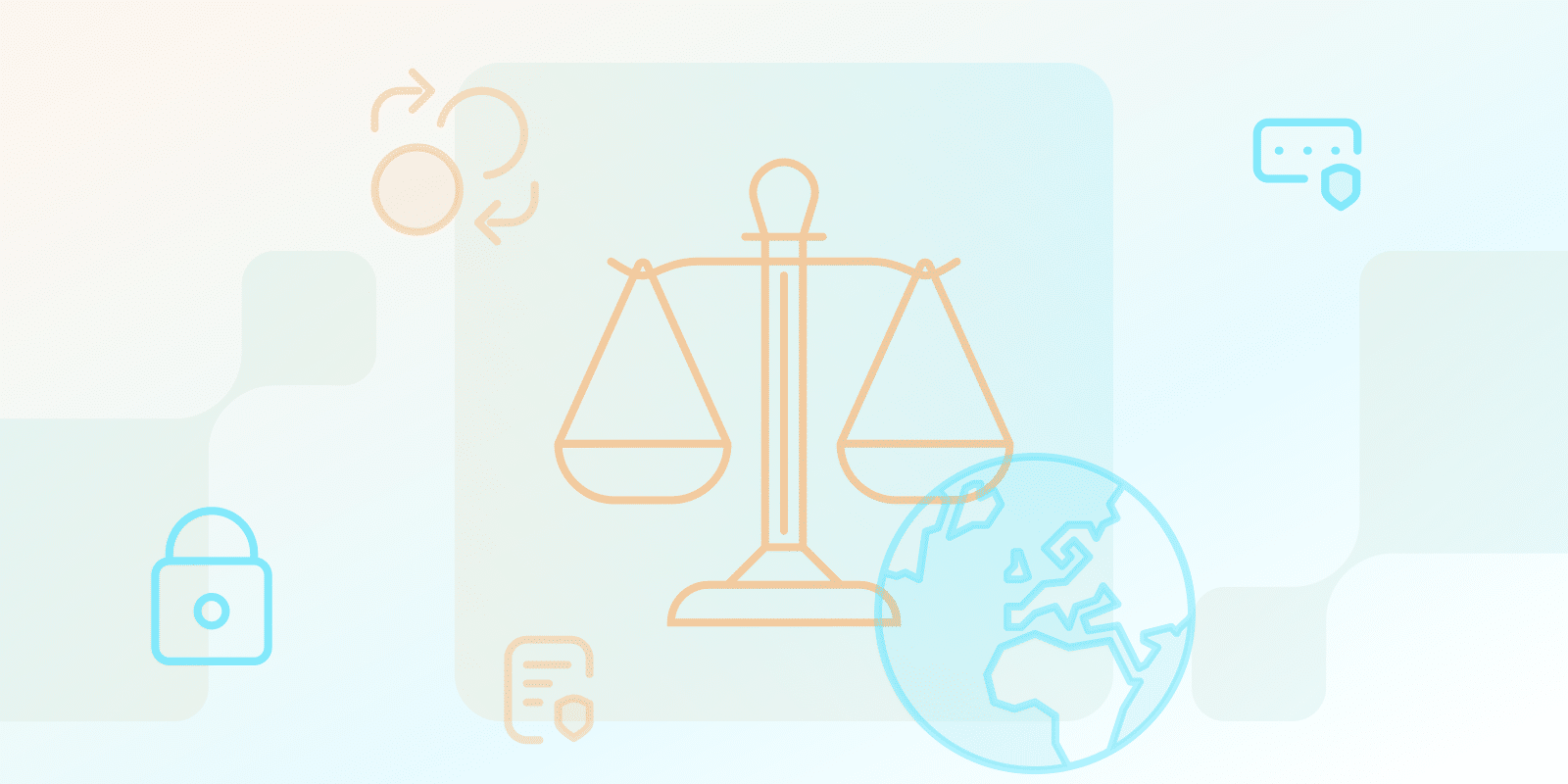Conformità nel cloud
Cosa sono le normative specifiche del settore?

Cosa sono le normative specifiche del settore (HIPAA, PCI DSS, GDPR)?
Le normative specifiche del settore si applicano a settori specifici, come sanità e finanza. L'obiettivo principale è proteggere i dati sensibili; le leggi variano in base ai requisiti del settore.
- HIPAA (Health Insurance Portability and Accountability Act): Specifico per il settore sanitario; progettato per la protezione dei dati sanitari dei pazienti.
- PCI DSS (Payment Card Industry Data Security Standard): Settore finanziario; progettato per la protezione dei dati del titolare della carta durante le transazioni.
- GDPR (Regolamento generale sulla protezione dei dati): Applicabile a tutti gli stati membri dell'UE e regola la raccolta e l'elaborazione dei dati. Si applica anche ai membri non UE dello SEE (Norvegia, Islanda e Liechtenstein).
Perché la conformità normativa (PCI, HIPAA, DSS, SOX, GLBA, GDPR) è importante per la sicurezza informatica?
La conformità normativa è una linea guida per i tuoi framework di sicurezza. Dovresti rispettare i requisiti normativi per la sicurezza informatica implementando controlli di sicurezza e pensando alle tue politiche.
È fondamentale rispettare le normative per evitare minacce alla sicurezza informatica, come violazioni dei dati, e quindi evitare le implicazioni finanziarie e reputazionali.
Qual è la differenza tra conformità HIPAA e PCI?
- HIPAA: per il settore sanitario e si concentra sulla protezione delle informazioni sulla salute dei pazienti, con privacy e riservatezza come due aspetti fondamentali.
- PCI DSS: regolamento del settore finanziario che richiede ai fornitori di proteggere i dati dei titolari di carta durante le transazioni; è necessario per prevenire le frodi e per la sicurezza dei dati. Questa regola si applica a tutte le entità che gestiscono i dati dei titolari di carta.
Scopri le differenze tra questi due per assicurarti di concentrarti su ciò che si applica al tuo settore e modello di business.
| Aspetto | HIPAA | PCI DSS |
|---|---|---|
| Focus normativo | ||
| Settore industriale primario | Assistenza sanitaria | Servizi finanziari |
| Obiettivo Principale | Proteggere le informazioni sanitarie dei pazienti | Proteggere i dati dei titolari di carta durante le transazioni |
| Aspetti chiave della protezione | ||
| Preoccupazione principale | Privacy e riservatezza del paziente | Prevenzione delle frodi e sicurezza dei dati |
| Tipo di dati protetti | Protected Health Information (PHI) | Informazioni sulla carta di pagamento |
| Requisiti di conformità | ||
| Ambito di applicazione | Fornitori di assistenza sanitaria, associati | Tutti i soggetti che trattano i dati dei titolari di carta |
| Misure chiave di conformità | • Crittografia dei dati • Controlli di accesso • Registri di controllo | • Rete sicura • Proteggere i dati dei titolari di carta • Mantenere i sistemi di sicurezza • Controllare l'accesso • Monitoraggio regolare |
Che cos'è la conformità HIPAA per SaaS?
La conformità HIPAA per SaaS implica l'elaborazione e l'archiviazione dei dati PHI nelle tue applicazioni basate su cloud. Ciò comprende:
- Crittografia dei dati
- Controlli di accesso
- Tracciati di controllo
- Accordi di associazione commerciale con i clienti
Puoi iniziare esaminando le funzionalità di personalizzazione del tuo provider SaaS e implementare i controlli di sicurezza necessari.
Che cos'è la conformità PCI-DSS per SaaS?
PCI-DSS rende obbligatorio mantenere un ambiente sicuro durante la gestione delle informazioni sulle carte di pagamento e il suo scopo è prevenire le frodi. La normativa è stata creata dalle società di carte di credito e richiede di fare quanto segue:
- Proteggere la propria rete: Proteggi i dati memorizzati e modifica le impostazioni predefinite. Devi anche installare firewall.
- Proteggi i dati del titolare della carta: Crittografa la trasmissione dei dati durante il processo di trasferimento e assicurati che nessun dato sensibile venga memorizzato; fare altrimenti è contro le regole.
- Mantieni la sicurezza: utilizza un software antivirus e mantieni aggiornati i tuoi sistemi e le tue app.
- Controlla l'accessos: Imposta i parametri di accesso utente e assegna ID univoci a ciascuna persona nel cloud.
- Monitoraggio e test: Testa le tue misure di sicurezza e monitora gli accessi per evitare violazioni.
- Politica di sicurezza: Redigi una politica di sicurezza e rivedila frequentemente per apportare modifiche.
Come posso rendere il mio SaaS conforme al GDPR?
Segui questi passaggi per la conformità SaaS al GDPR:
- Minimizzazione: Raccogli i dati personali necessari e conservali solo per il tempo necessario.
- Consenso: Ottieni il consenso esplicito degli utenti prima di raccogliere o elaborare i dati.
- Diritti dell'interessato: Consenti agli individui di accedere ai propri dati e consenti loro di rettificarli e cancellarli se lo desiderano.
- Protezione dei dati fin dalla progettazione: Considera la privacy durante la fase di progettazione del tuo prodotto.
- Notifica di violazione dei dati: Segnala tutte le violazioni entro 72 ore e implementa misure per minimizzarne gli effetti.
Indipendentemente da dove operi nell'UE, il GDPR è obbligatorio. Anche i paesi limitrofi, come il Regno Unito e la Svizzera, hanno le proprie leggi da rispettare.
Ricorda:
La conformità è un processo continuo e dovresti rivedere regolarmente le tue misure di sicurezza.
Conclusione
Comprendere le normative del tuo settore è essenziale e dovresti impostare dei processi per rimanere aggiornato su di esse. È importante per salvaguardare le informazioni e devi anche rispettare le regole per evitare le implicazioni legali e finanziarie. Conosci anche cosa si applica alla tua regione.